|
After Life is such a rich text that in many ways it defies simplistic critique or classification, slowly unfurling over the course of its narrative in a way that strengthens and transcends its clever conception. Kore-eda's tender fable is a self-reflexive ode to cinema as a tool for reflection that delivers a poignant rumination on mortality, experience, and remembrance. Synthesizing both the internal and external nature of living, After Life is a quietly transcendent experience that elucidates how we as emotional beings are deeply sculpted not only by our own memories but also by how we are seen by others. Exposing the false binary we construct between the personal and social, the individual and the collective, After Life details how memory itself, while spawned from one's own interior experiences, is often informed by the connectivity we have through mutual exchange. In a sense, After Life encapsulates the nature of being. A reciprocal entity, one which is constantly in flux due to our nature as social creatures, After Life ultimate details how a sense of catharsis come through acceptance, while somehow simultaneously managing to never be overly assertive in any way, recognizing that everyone's path to such a state is distinct. Quite remarkable how its multitude of characterizations only strengthens over the course of its narrative symbiotically, After Life is a quite remarkable work in which cinema itself is deployed as a tool of reflection to excavate not distract from its thematic ruminations of the essence of being.
0 Comments
An erotic neorealist examination of corruption, and the coercive forces at play in the vibrant, seedy sex industry of Manila, Lino Brocka's Macho Dancer is a wonderfully conceptualized melodrama that exposes the exploitation of the desperate while managing to never fall victim to reductive, puritanical reasoning as it pertains to sexuality and personal autonomy. For Brocka, the diasporic nature of the big city and the promises it projects of a better life are myopic and deceitful to the true complexities at play. The economic opportunities of the city attract not only those simply seeking a better life but also those looking to exploit the desperate or needy, and perhaps what Macho Dancer elucidates so well is how it has little to do with legality - the influx of money breeds corruption that obfuscates any standing political and social relationships, outside of individualistic attainment. Macho Dancer draws no true distinction between state operatives or other criminal elements who exploit the desperate, recognizing that the various ways in which individuals are coerced have little to do with legality and everything to do with greed. Fundamentally, the name of the game is extracting monetary value, and Brocka shows disdain for the type of lifestyle, exposing how a sense of community is non-existent with disparate individuals all maneuvering through the city in an effort to help themselves. A deeply sensual experience, Brocka's Macho Dancer is an erotic melodrama that understands one can embrace sexuality and pleasure while simultaneously critiquing the coercive forces at play within sex work.
Xiao Wu shows flashes of what would become Jia Zhangke's masterful use of mise-en-scene in which his rigorous formal style and precise visual tableaux would ultimately lead him to become one of the essential filmmakers of his generation. The tenets of China's rapid transition, the effects transnational exchange and modernity have placed on the social are embedded into the thematics of even his debut feature, yet Xiao Wu remains one of his more intimate and simplistic structural works, one in which he deploys a cinema verite to elucidate these themes. The story of a small-town pickpocket who finds himself in a state of solitude after discovering many of his old friends have now gone straight- embracing the commercialism and commodification intrinsic to capitalism - Xiao Wu's narrative framework slyly draw parallels between crime and capitalism exhibiting how state-enforced notions of legality form the only point of distinction from a behavior that is largely the same. A soulful portrait of alienation and despondency, Jia's debut ultimately feels rooted more in emotion poignancy than thematic rigor. The displacement and disorienting effect transnational exchange can place on those ill-equipped or ill-prepared to contribute is deeply felt, and in many ways this story is more rooted in the individual than nearly any of his other films which I can recall, exhibiting the rapid evolving milieu through the lens of an individual who ultimately becomes an outcast, incapable of embracing the chaotic nature brought by this rush toward transnationalism and ultimately capitalism. The denouement is the perfect encapsulation of the divisions and disruption to the social told through a personal ontology. A stunning debut feature that signals the impressive filmmaker Jia Zhangke would later become, Xiao Wu aptly feels like a young filmmaker working towards what would become his formal style.
A slick, 90s era dystopian neo-noir that is certainly assured in the story it wishes to tell. Featuring a brazen deployment of every trope within the subgenre one could conceive, Reminiscence never feels rhythmic but rather mechanical or inorganic. Consistently imbued with a passion for the material by the filmmakers which is felt, the attention to detail in its world-building and spatial construction almost overcomes these rhythmic shortcomings full of pedantic dialogue but not quite. The world-building in general intrigues, yet it feels far too vibrant for the dystopian aims and sensibilities the film also seemingly wants to evoke, and Reminiscence really missteps when it tries to become a commentary on class, being ultimately devoid of any meaningful investigation outside of a tacked-on attempt at social commentary. Much of these criticisms can be overlooked due to the style and passion for the material on display here, but the film's proclivity towards rote exposition is a real bummer; It really makes the film feel tedious and artificial instead of emotive. I can't in recent memory remember a high concept film like this so riddled with pedantic exposition.
"I'm not that drunk, lets Waltz" - Truer words have never been spoken.
Carax's visual tableaux remains wondrous, intoxicating, and distinctly expressive, consistently ruminating on the human condition and the artificiality of modernity via heightened notions of reality which at times feel farcical. Honestly, for my money despite its flaws, this is cinema baby! I don't really agree with the critique that Annette is devoid of emotion due to its heightened dimensions. Personally, I found this film to embrace affect quite vividly thru the rejection of more traditional modes of storytelling. When you think about it, Annette's narrative framework is very simple, yet what Carax constructs is an immersive, vibrant reality that lives beyond traditional notions of narrative storytelling. Operating on a plane in which lucidity and expressivity attempt to capture the ontological, Carax's proclivity towards mischief is well represented but I think the maturity and honesty Jeanette captures through its heightened construction deserves more credit - the consistent struggle that is living and loving in the modern world is luminously expressed. Carax is a provocateur in many regards, and while this film provides so much to chew on, I believe his mischievous nature distracts some from the film's emotional pulse. Either way, I enjoyed the ride. Escape from Mogadishu could have easily chosen the reductive route taken by many films before it, exploiting complex historical events for the sake of constructing escapist entertainment at best, or jingoistic propaganda at worst. Instead, what the filmmakers manage with Escape from Mogadishu is a film imbued with a sense of hope about our shared humanism in times of conflict, traversing the familiar conception and expectations of visceral action and chaotic circumstances to deliver a rather pointed commentary of our shared humanity, one in which national identity or notions of community defined by the state apparatus are exposed for their absurdity in moments of life or death. Described as an action film really only for marketability, Escape from Mogadishu really takes its time in the beginning, elucidating the games at play in diplomacy and global politics that inevitably shape the lives of so many. The civil unrest in Somalia is the setting for this story but it also has thematic relevancy, as Escape from Mogadishu draws subtle comparisons between the civil war in Somalia with that of de-unified Korea, not directly in a political sense, but in a way that positions humanism as a trait that ultimately defies all abstract divisions we as humans construct. This is not to say that Escape from Mogadishu is astute in its commentary on Somalia, it certainly has no aspirations to do so, but it isn't exploitative either, certainly acknowledging the pejorative impact foreign nations had on Somalia and its people - sound familiar? - while simultaneously delivering effective melodramatics about strength in unity and the universal nature of empathy and its importance in times of chaos.
My Missing Valentine is a charming, cleverly constructed romantic comedy that shows a natural reverence for the art of comedy. Deploying an effective panache to complement its fantastical conception, My Missing Valentine features the assured vision necessary to pull off a film with such a heightened conception and low-key subversive sensibilities. When you step back and think about it, My Missing Valentine's narrative doesn't make a whole lot of sense. It could be interpreted as immoral or perverse for those so inclined, and yet the film balances tone so effectively and is so assured in its directorial vision, I couldn't help but fall victim to its warm embrace. Oscillating seamlessly between playful comedy and heartfelt drama, My Missing Valentine's narrative prowess is more rooted in its structural subversion and general creativity than narrative coherence. Toying with the fine line between predatory, and effectively crossing it only to revert back through temporal displacement, My Missing Valentine is such a strange, infectious, compelling comedy that provides ample opportunity for discussion.
Traverses a fine line when it comes to casting blame for such heinous actions, detailing how it's often a confluence of forces related to individual acts of violence and the systemic conditions that perpetuate their continuation through neglect or willful ignorance. The Silent Forest is a rough film dealing with sexual violence that works far more than it doesn't, thanks to its nuanced approach when it comes to dealing with these truly unimaginable acts. Often films like this are rooted more in delineation than nuanced exploration, and while The Silent Forest is intrinsically gifted a general framework to follow - given it's based on a true story - the film manages to tap into the complexities of such amoral actions with a sense of nuance that exhibits the cyclical nature of violence and the ease in which victims can become confused in more ways than one when affronted by trauma. Violence begets violence, the obfuscation of confronting such acts only perpetuates their continuation - The Silent Forest could be seen as a somewhat by-the-numbers true crime story, yet its craft and general nuances make it a solid film nonetheless.
Instilled with a playful demeanor and a distinct formal style that deploys surrealistic flourishes and a touch of magical realism, Akiko Okhu's Hold Me Back is such an acute study of consciousness, delivering a rapturously effective study of the complexities of identity. As individuals, we try and find a sense of belonging with ourselves against the external effects that sculpt our experience, and what Hold Me Back achieves so beautifully is the continuous nature of personal growth. Oscillations between melancholy and jubilation are intrinsic to living, and through this infectious, playful tonal balancing act that never feels saccharine nor cynical, Hold Me Back details the continuous struggle to find our own semblance of peace, detailing the necessity for it to be forged from within. Our social nature as human beings requires relationships and connection in order to fuel personal growth, yet the toxicity of self-doubt can be spawned from such exchanges - its persistence is a restraint that must be overcome. As someone who is closing in on 40 years old and has struggled to find meaningful relationships of the romantic variety, Hold Me Back blindsided me emotionally through its honesty about the fears which loneliness and even solitude can place on the psyche. Fragility is simply a part of the experience. Okhu's directorial vision is infused with vibrancy and emotive immersion, deploying a gaze rooted in intimacy but also subjective expressivity. A reductive reading of Hold Me Back would describe it as an infectious, delightful romance, one which beautifully expresses the vulnerability, awkwardness, and ultimately jubilation intrinsic to a budding romance. While this isn't inaccurate in a sense, it's an oversimplification of what Hold Me Back ultimately encapsulates, being an uncanny examination of the soul in which emotional progress isn't easy but something that must ultimately come from within one's own self. Affectionate, distinct, and immersive, Hold Me Back's vision is matched beautifully by a phenomenal lead performance by Non as Mitsuko, who beautifully elucidates the vulnerability of looking for connection, and the restrictions fears, often forged from bad past experiences, can place on personal growth. It's a lovely film and one of the best I've seen this year.
Alan Rudolph's Remember My Name is a singular vision, a film of little pretense or exposition that delivers a formally dazzling study of emotional trauma. Featuring a narrative structure forged out of a fatal attraction-esque archetype that eventually reveals itself as a clever diversion, Remember My Name is a masterful piece of narrative and character, that features an absolutely enthralling lead performance by Geraldine Chaplin. The mystery, combustibility, and underlying fragility of this main characterization are so rapturously portrayed by Chaplin, who delivers a characterization with biting authenticity, elucidating the fractured psyche of a deeply troubled woman. Rudolph's formal style deployed here is particularly effective, the voyeuristic gaze and use of empty space exhibit both the fear but also the underlying trauma of this fascinating central characterization. A recurring visual motif of compositions resembling the bars of a cage or prison cell is magnificent, visually evoking the state of this character, a woman who is emotionally imprisoned. A character who feels so dangerous due to her raw emotional state eventually becomes sympathetic, with Remember My Name finding utility in its ambiguity with thematic undercurrents that offer up the potential for variant readings. There is subtext here rooted in a social examination of mental illness or society's negligence, with the denouement reinforcing this ideal thematically while satisfying those looking for narrative resolution, though not in a traditional sense. There is a sense of unattainability here, much like the complexities of emotion. The vengeful, punitive measures deployed ultimately deliver the nasty, biting finale one would expect from its initial setup, but the film's ability to so acutely navigate emotional trauma and fragility make it perhaps one of the best studies of fatal attraction ever made due to this underlying commentary. The emotional violence of deception and abandonment exhibited through a stunning lead performance, Rudolph's precise directorial vision delivers a stunning portrait of the emotional creatures we are and the grand sweeping effects it can place on communal living under a system built around punitive justice.
|
AuthorLove of all things cinema brought me here. Archives
June 2023
|
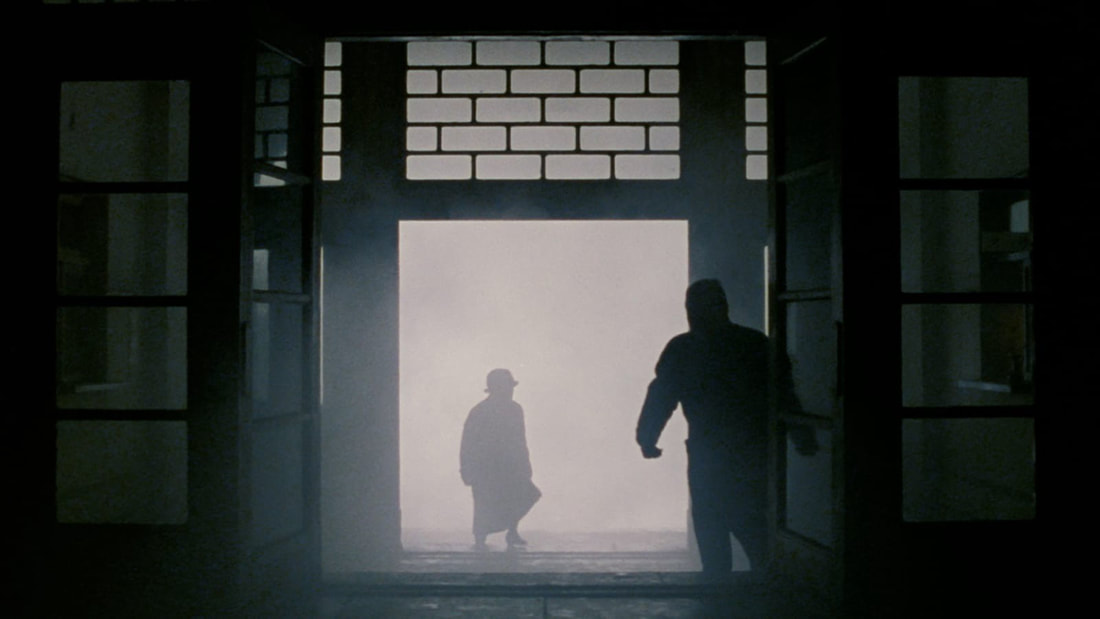
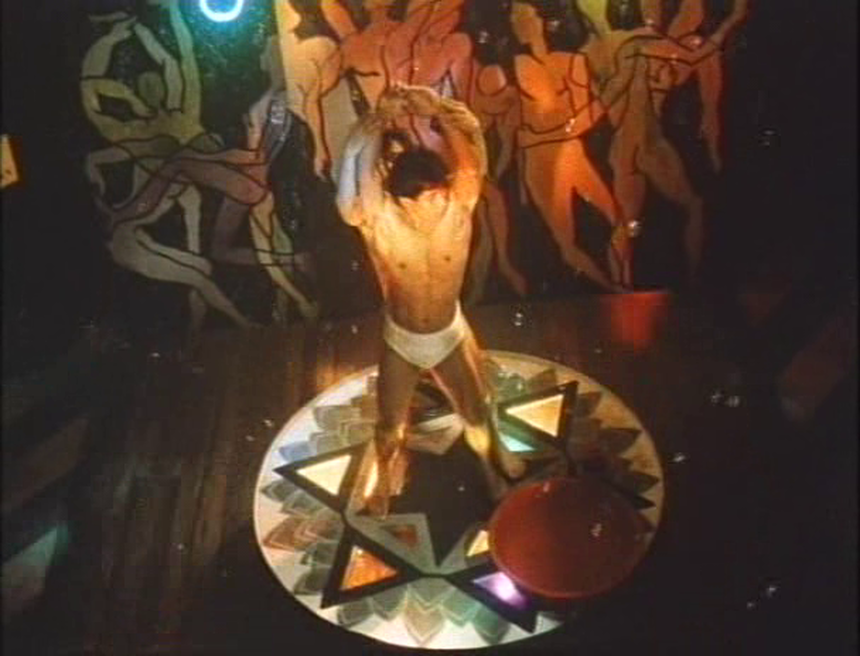
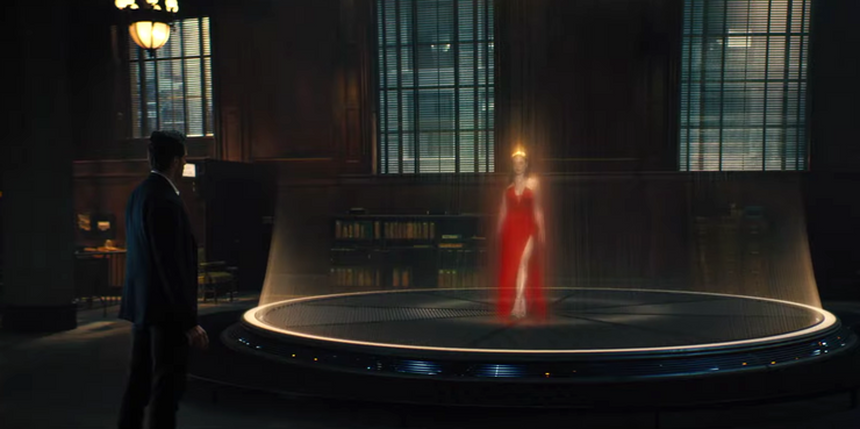
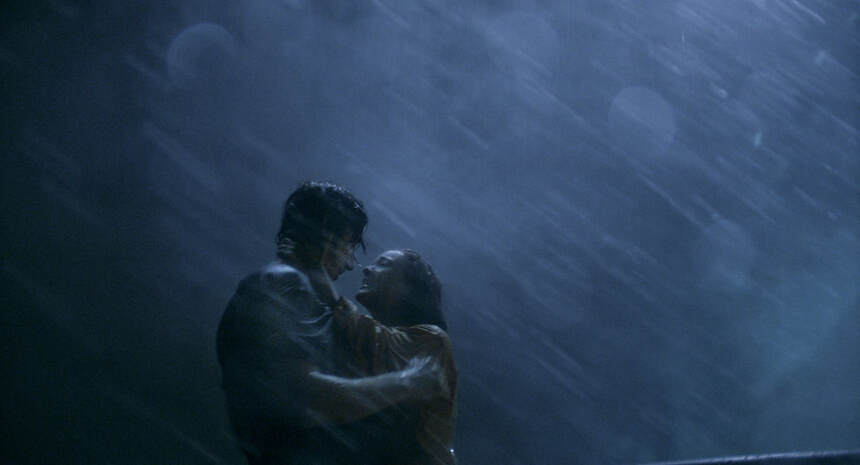
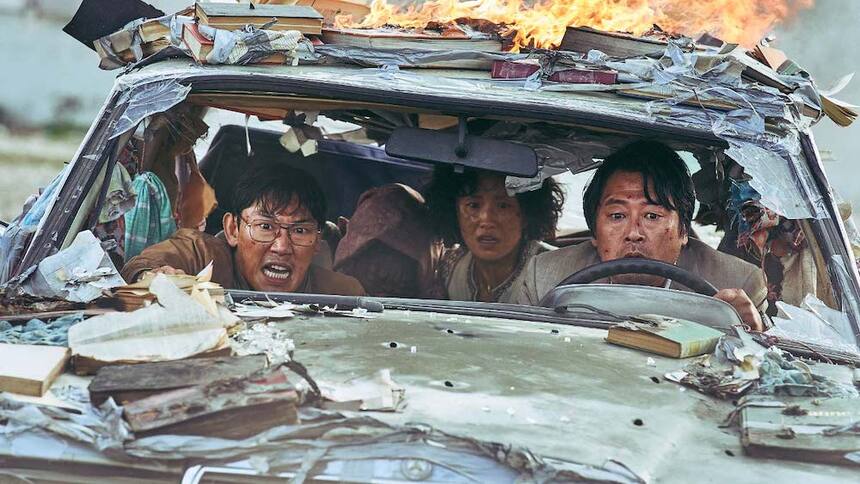

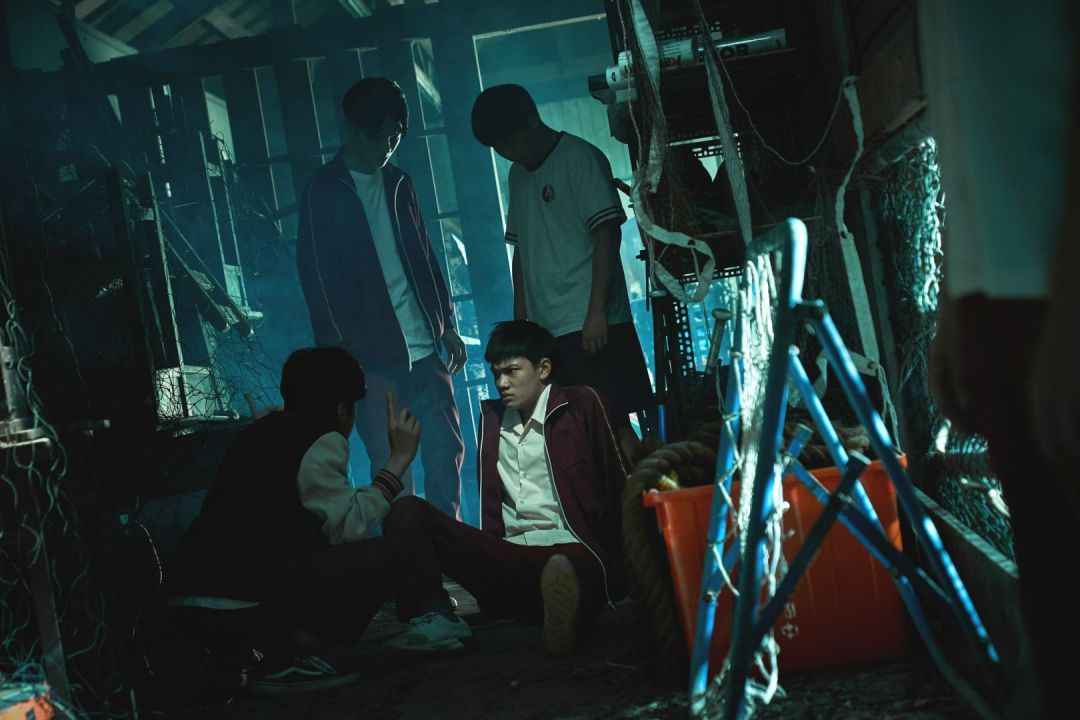
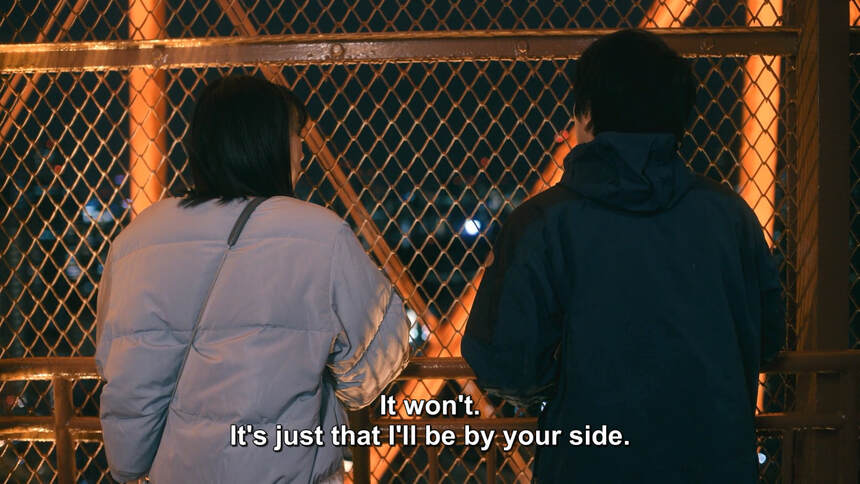
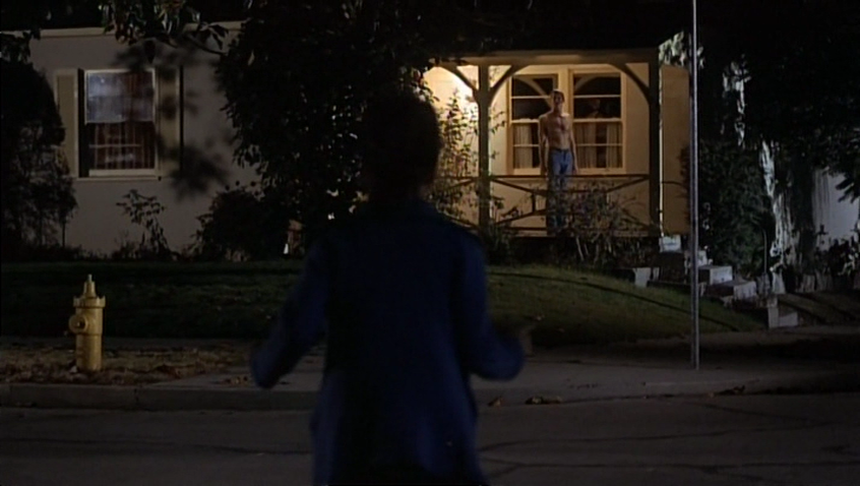
 RSS Feed
RSS Feed
